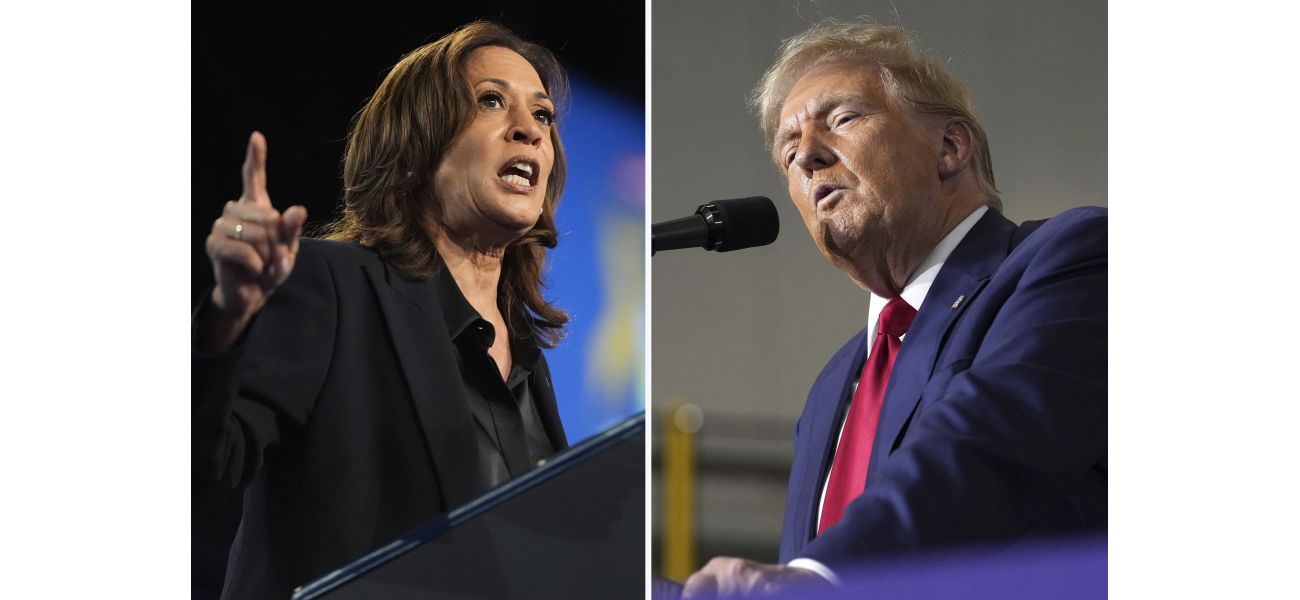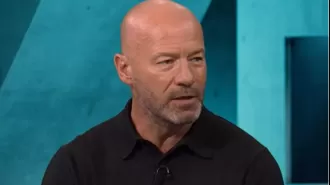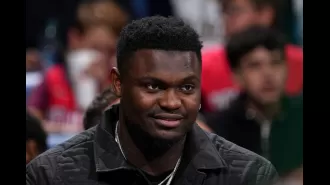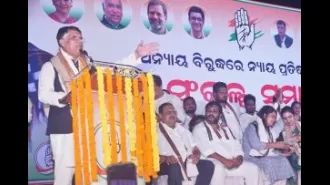The Washington Post deviates from its usual practice and does not endorse a candidate for the US presidential election after 36 years.
The Washington Post will not endorse a candidate in the upcoming US presidential election, causing controversy among its employees.
October 25th 2024.

In a surprising move, The Washington Post's publisher, Will Lewis, announced on Friday that the newspaper will not be endorsing a candidate in this year's US presidential election. This decision has sparked a lot of outrage among the staff at the Post, as it is the first time in decades that the newspaper will not be endorsing a candidate.
Lewis stated in a published statement, "The Washington Post will not be making an endorsement of a presidential candidate in this election. Nor in any future presidential election. We are returning to our roots of not endorsing presidential candidates." This decision marks a significant change as the Post has endorsed a candidate in every election since the 1980s.
Lewis also referred to the Editorial Board's past decisions to not endorse a candidate, mentioning that this is a right that they are going back to. He acknowledged that this decision will be interpreted in different ways, but he sees it as consistent with the values that the Post has always stood for. These values include character, courage, respect for the rule of law, and human freedom in all its aspects, which they hope to see in a leader.
According to sources briefed on the matter, the decision not to endorse a candidate was made by the newspaper's owner, Jeff Bezos, who is also the founder of Amazon. Newspaper owners usually play a role in their publication's endorsements, and they sign off on the editorials, which are seen as a reflection of their views. However, a spokesperson for the Post declined to comment on Bezos' involvement.
Before the announcement, the Post's editorial page editor, David Shipley, informed the staff that Lewis would be publishing a public note with the decision. In a memo, Shipley acknowledged that the news is significant and that there will be strong reactions from the staff.
A source with knowledge of the matter revealed that the editorial board had drafted an endorsement for Vice President Kamala Harris, but it was never presented. This news has left many members of the editorial board surprised and angry.
Marty Baron, the Post's former executive editor, who led the newspaper through its coverage of the January 6th attack on the US Capitol, strongly criticized the decision. In a social media post, Baron wrote, "This is cowardice, with democracy as its casualty. Donald Trump will see this as an invitation to further intimidate owner Bezos. Disturbing spinelessness at an institution famed for courage." Under Baron's leadership, the Post won a Pulitzer Prize for its coverage of the assault on the Capitol, which they described as an "attempted coup."
During Trump's presidency, he notoriously feuded with Bezos, especially when it came to Amazon. Trump often referred to the Post as the "Fake News Washington Post" and accused it of being Amazon's "chief lobbyist." He also accused Amazon of not paying enough taxes and taking advantage of the US Postal Service. The Trump administration even blocked Amazon's $10 billion cloud computing contract with the Pentagon, which was seen as retaliation against Bezos for the Post's reporting.
According to Baron's book, Collision of Power, it was Bezos who ultimately came up with the Post's motto, "Democracy Dies in Darkness," during the Trump era. A journalist from the Post, who wished to remain anonymous, shared their mixed feelings about the decision. They said, "I'm glad the Post isn't going to endorse anymore. But, what an awful time and way to roll that out. If you've read the Post for the last few years and all the facts the news side has uncovered, I'm not sure you need the editorial board to tell you what to do."
This decision comes shortly after the owner of The Los Angeles Times, Patrick Soon-Shiong, blocked the newspaper's planned endorsement of Vice President Kamala Harris, leading to the resignation of three editorial board members. In recent years, major US newspaper chains, such as McClatchy and Alden Global Capital, have also ended the practice of endorsements. The New York Times also announced earlier this summer that they would no longer be endorsing candidates in local races. However, they later endorsed Harris as "the only patriotic choice for president."
Lewis stated in a published statement, "The Washington Post will not be making an endorsement of a presidential candidate in this election. Nor in any future presidential election. We are returning to our roots of not endorsing presidential candidates." This decision marks a significant change as the Post has endorsed a candidate in every election since the 1980s.
Lewis also referred to the Editorial Board's past decisions to not endorse a candidate, mentioning that this is a right that they are going back to. He acknowledged that this decision will be interpreted in different ways, but he sees it as consistent with the values that the Post has always stood for. These values include character, courage, respect for the rule of law, and human freedom in all its aspects, which they hope to see in a leader.
According to sources briefed on the matter, the decision not to endorse a candidate was made by the newspaper's owner, Jeff Bezos, who is also the founder of Amazon. Newspaper owners usually play a role in their publication's endorsements, and they sign off on the editorials, which are seen as a reflection of their views. However, a spokesperson for the Post declined to comment on Bezos' involvement.
Before the announcement, the Post's editorial page editor, David Shipley, informed the staff that Lewis would be publishing a public note with the decision. In a memo, Shipley acknowledged that the news is significant and that there will be strong reactions from the staff.
A source with knowledge of the matter revealed that the editorial board had drafted an endorsement for Vice President Kamala Harris, but it was never presented. This news has left many members of the editorial board surprised and angry.
Marty Baron, the Post's former executive editor, who led the newspaper through its coverage of the January 6th attack on the US Capitol, strongly criticized the decision. In a social media post, Baron wrote, "This is cowardice, with democracy as its casualty. Donald Trump will see this as an invitation to further intimidate owner Bezos. Disturbing spinelessness at an institution famed for courage." Under Baron's leadership, the Post won a Pulitzer Prize for its coverage of the assault on the Capitol, which they described as an "attempted coup."
During Trump's presidency, he notoriously feuded with Bezos, especially when it came to Amazon. Trump often referred to the Post as the "Fake News Washington Post" and accused it of being Amazon's "chief lobbyist." He also accused Amazon of not paying enough taxes and taking advantage of the US Postal Service. The Trump administration even blocked Amazon's $10 billion cloud computing contract with the Pentagon, which was seen as retaliation against Bezos for the Post's reporting.
According to Baron's book, Collision of Power, it was Bezos who ultimately came up with the Post's motto, "Democracy Dies in Darkness," during the Trump era. A journalist from the Post, who wished to remain anonymous, shared their mixed feelings about the decision. They said, "I'm glad the Post isn't going to endorse anymore. But, what an awful time and way to roll that out. If you've read the Post for the last few years and all the facts the news side has uncovered, I'm not sure you need the editorial board to tell you what to do."
This decision comes shortly after the owner of The Los Angeles Times, Patrick Soon-Shiong, blocked the newspaper's planned endorsement of Vice President Kamala Harris, leading to the resignation of three editorial board members. In recent years, major US newspaper chains, such as McClatchy and Alden Global Capital, have also ended the practice of endorsements. The New York Times also announced earlier this summer that they would no longer be endorsing candidates in local races. However, they later endorsed Harris as "the only patriotic choice for president."
[This article has been trending online recently and has been generated with AI. Your feed is customized.]
[Generative AI is experimental.]
0
0
Submit Comment





